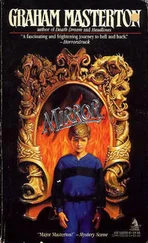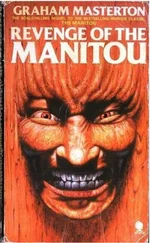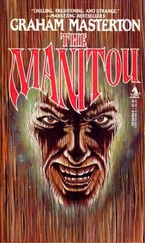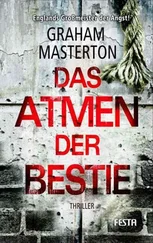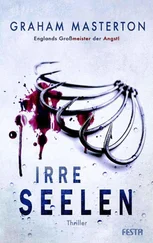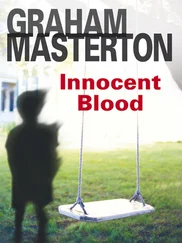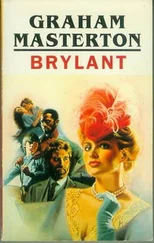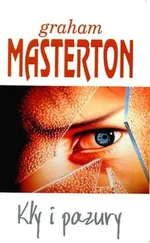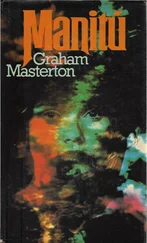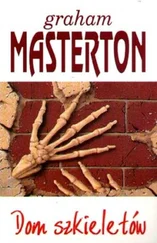“But what was the point of it?” asked Nancy. She had her hair pinned back and she was looking tired.
“I don’t think there was any point. She was depressed, she was mixed up, maybe that had something to do with it. Maybe she’d caught a dose of the English sense of humor. Kaiser Gardens, for Christ’s sake. She made a fool out of all of us.”
“So what are we going to do now?”
“There’s nothing else we can do. We’ve checked every possible angle.”
“What about the old woman’s rhyme?”
“I don’t think that meant anything, either. She was senile, that’s all. I was still in shock after seeing Julia in the mortuary.”
“What happened to all of that stuff about her tuning in to your anxiety?”
“I was in shock, wasn’t I? I was subconsciously looking for some kind of meaning in Julia’s murder. Some kind of an explanation, I guess.”
“The old woman couldn’t have known you, but she said your name.”
“She was reciting Mother Goose rhymes, that’s why she said my name. When I walked past she happened to be saying ‘Jack be nimble’. Sheer coincidence.”
“Ella seemed to think that it meant something.”
“Ella’s a … spiritualist, for Christ’s sake. She reads tealeaves. She talks to dead people.”
“Well, let’s look up the six doors rhyme, anyway. I mean, just out of interest. I think this British culture is really fascinating.”
“I think it’s really depressing. It’s so old.”
They found the latest edition of the Oxford Dictionary of Nursery Rhymes, but it contained no mention of the six doors. In an older book, however, Goosey Goosey Gander & Other Rhymes, by James and Sylvia Wilmott, almost three pages were devoted to it, including a disturbing but beautiful drawing by Walter Crane, the famous children’s illustrator.
“Look at this,” said Nancy. “This is really strange.”
The drawing showed a high brick wall with a door in the middle of it. On one side of the door was a rain-lashed medieval city, with dark overhanging buildings and cobbles strewn with straw. In the near distance, a group of six or seven men were approaching, with high Puritan hats and black capes and buckled shoes. They were all carrying swords. Strangest of all, though, under their hats, their faces were completely covered with rough hessian hoods, with staring black eyes painted on them. A fearful mother was snatching her tiny children out of the Puritans’ path; and a bristling black cat was jumping for shelter.
The door was half-open, and a handsome young man with long curly hair was stepping through it, turning around as he did so to see how near the Puritans were. Ahead of him he was pushing a young woman with a baby clutched tight in her arms, presumably his wife.
On the other side of the door, in complete contrast to the grimness of the city, the sun was shining, and there were fields of barley and apple orchards. A small thatched cottage stood in the distance, under a large elm, with smoke rising from its chimney. Two or three laborers were scything the barley, and it looked as if one of them were running toward the door to help, or maybe to shut it; who could tell?
But there was another man, too, who was disproportionately tall, almost as tall as the cottage. His back was turned so that his face was hidden, and he wore a long cloak with a pentagram marked on it.
“Weird,” said Josh.
Nancy read out the rhyme. “Six doors they stand in London Town. Six doors they stand in London, too. Yet who’s to know which way they face? And who’s to know which face is true?”
Underneath, the commentary read:
Although it is less well known than many nursery rhymes, Six Doors They Stand is probably one of the oldest, dating back to the early part of the seventeenth century. There are several different interpretations of its meaning, but most historians agree that it was at its most popular in London in 1650, immediately after the execution of Charles I. Samuel Pepys refers to it briefly in the first volume of his diaries in 1659, and says that “Even now, this simple rhyme still excites a quiver of dread, conjuring up as it does such vivid memories of the Hooded Men, hurrying about their terrible business in the name of the Almighty.”
In the first years of the Commonwealth, a secret society of extreme Puritans sent groups of Hooded Men through the streets of London every night, hunting down Catholic and Episcopalian families. Those who refused to deny their popery or their allegiance to the Book of Common Prayer were cruelly tortured or put to death.
Some say that the “six doors” were the doors of six London churches in which the Catholics could seek sanctuary from the Hooded Men. However, this sanctuary was only limited, and by the time the next Sabbath day came around, the Catholics were given the option of renouncing their religion or of being forced back on to the streets. The clerics in some of the churches, however, were thought to have been more tolerant, and assisted the Catholics to escape by river to France. Hence the question, “who’s to say which way they face”.
Others suggest that the “six doors” were the doors of secret Catholic meeting places, where they could safely celebrate mass together. Yet another interpretation is that they were gaming houses where dice was played for large sums of money. The question about “which face is true” is a reflection on the common practice of weighting dice to change the odds in favour of the house.
Perhaps the most colourful explanation is that the “six doors” were six places in London where it was possible to pass from the world of harsh Puritan reform into a parallel world of tolerance and happiness. The stories go that the location of these “doors” was known only to a select few, called the Doorkeepers, who became extremely wealthy by charging Catholics huge sums of money to escape from Puritan London. The likelihood, however, is that once the Catholics had paid their extortionate “fare” into the next world, they were simply murdered and their bodies dropped into the Thames – their friends innocently believing that they were now living another, Elysian existence, beyond the reach of the Puritans’ Hooded Men.
The Doorkeepers were said to practise the very oldest of magical arts, since it was only by the use of certain occult rituals that one could safely pass through to the other side. Part of the ritual was probably Druidic. Another part involved the lighting of communion candles and leaping over them, which by 1688 had given rise to another famous nursery rhyme, “Jack be nimble, Jack be quick, Jack jump over the candlestick” – “Jack” being seventeenth-century slang for Jacobite, a Roman Catholic supporter of the Stuart restoration.
Nancy said, “That’s some legend. You jump through the door and you’re someplace else!”
Jack touched the illustration with his fingertip, tracing and retracing the outline of the door. “Yeah. Wild, isn’t it?”
Nancy narrowed her eyes. “I know that look. Just a minute ago you were telling me that the old woman was senile. Just a minute ago, you were telling me that the nursery rhyme was just a coincidence.”
“A hundred to one it probably is.”
“But?”
“I don’t know. I seriously don’t know what to think.”
“We have a parallel world in Modoc and Klamath mythology, too. A world without white men, where we still hunt, fish and farm without interference from you palefaces.”
“Sure. But you’ve never actually been there, have you? And you don’t know anybody else who’s been there, either?”
“I’ve never been there because I don’t believe in it, I mean not as an actual reality, and anyhow I like palefaces and I’ve never wanted to fish or farm. Apart from that, I wouldn’t have the first idea how to get there.”
Читать дальше

